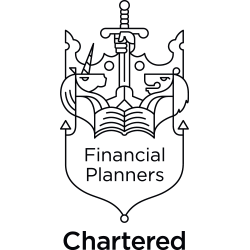Buying a campervan: Your guide to the most popular ways to fund the purchase
Whether you have big travel plans for your retirement or you’re looking for a weekend getaway, you might have considered buying a campervan.
There are many benefits to owning a campervan or motorhome. For example, the freedom of choosing your own itinerary, the comfort of a home from home, and the sense of community that comes from meeting like-minded individuals.
But before you hit the road, you’ll need to first acquire the vehicle itself. And that means working out the best way to pay for it.
Here’s your guide to four of the most popular ways to finance the motorhome (or any other vehicle!) of your dreams.
1. Payment in cash
If you want full ownership of the vehicle, full payment in cash will usually be the cheapest option.
Unlike the other options on our list, if you have sufficient cash to pay for the campervan outright, there’ll be no further charges or interest to pay.
If you can’t raise the full amount in cash, use the amount that you do have as a higher deposit. That way you’ll lower the amount you need to borrow, whether through a personal loan or Personal Contract Purchase (PCP). More on those later.
However much cash you put towards the purchase, be sure you leave sufficient money in the bank to cover emergency expenses. Your emergency fund is just that – for emergencies.
If you can’t afford to pay the full amount in cash, consider paying a small portion on a credit card. You’ll benefit from the added legal protection of credit card purchase protection, but limit your credit card expenditure to an amount you can quickly pay off, ideally in the next month or two.
2. A personal loan
If you would like to buy the campervan outright – and you have a good credit score – a personal loan might be the next cheapest option.
You’ll need to shop around to find the right loan for you. Be sure to compare APRs and any other charges, and also decide over how many years you want to pay the loan back. Banks, building societies, and finance providers will all offer loans, but picking the right one isn’t easy.
If you’re unsure whether a loan is the right choice for you, speak to us. We can help incorporate the purchase of a campervan into your long-term financial plan and help you decide the most affordable way to make your travel dreams a reality.
3. Personal Contract Purchase (PCP)
You might not be looking to buy your campervan or motorhome outright. Maybe you want the option to exchange it for a newer model later? Or maybe the availability of monthly payments makes the prospect more affordable? PCP might be the answer.
PCP is effectively a loan. Unlike a normal loan though, you won’t be paying off the full value of the camper and you won’t own it at the end of the deal – although you could choose to buy it at this point.
There are three main parts to PCP:
- The deposit
The deposit you’ll be asked to pay will usually be around 10% of the cost of the campervan. The larger the deposit you pay, the less you’ll have to borrow.
- The loan
The amount of loan you receive depends on how much value the vehicle is predicted to lose, over the term of the deal. A usual deal term is 24 to 36 months.
The deposit you’ve put down is deducted from the predicted loss in value and it is this amount, plus interest, that you’ll pay over the term.
Don’t just accept the deal from your car dealer, it is unlikely to be the best deal available.
Typical APRs are between 4% and 7% but be sure to shop around.
- A ‘balloon payment’
This is technically called the Guaranteed Minimum Future Value (GMFV) and represents the amount that the dealer expects the campervan to be worth at the end of the deal term. You agree on this with the dealer at the outset and it’s the amount you’ll need to pay if you decide to keep the vehicle.
At the end of the deal term, you decide whether you want to walk away, buy the campervan outright (by paying the balloon payment), or upgrade to a new camper.
When your PCP deal ends, the hope is that your campervan will be worth more than the balloon payment. You can use that ‘equity’ as a deposit on a new PCP deal or put it towards an upgrade and keep on travelling.
Finally, be aware that there may be additional charges to pay at the end of the term. The main charge you could incur is an over-mileage charge if you exceed the number of miles agreed at the outset. You’ll also be liable for the cost of any damage incurred during the term of the deal, outside of normal wear and tear.
4. Hire Purchase (HP)
Finally, you might consider a hire purchase agreement.
As with PCP, you’ll pay a deposit (usually around 10%) and then take out a loan for the rest, secured against the campervan itself.
You’ll pay a fixed amount each month to cover the cost of the loan – plus interest – and once you make the final payment, you will take full ownership of the vehicle.
HP is usually quick and easy to arrange, but it can work out expensive for short-term agreements.
Although unlikely to be obtainable on motorhomes, you may be able to get interest-free deals on cars at some car dealerships – if you are not wedded to a make and model, it is worth shopping around.
Get in touch
Whether you opt for cash, a loan, Personal Contract Purchase, or a Hire Purchase agreement, buying a campervan or motorhome (or a nicer car!) is a big decision and a large commitment.
Contact us at info@logicfinancialservices.co.uk if you’d like to discuss how the purchase of your new vehicle fits into your long-term financial plan.

